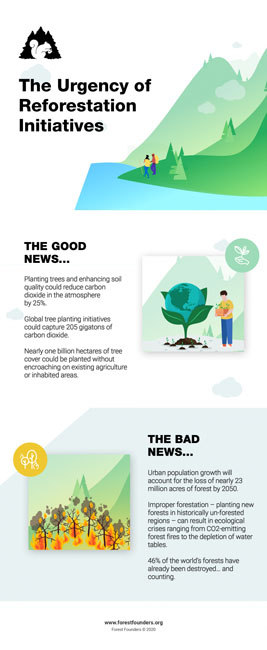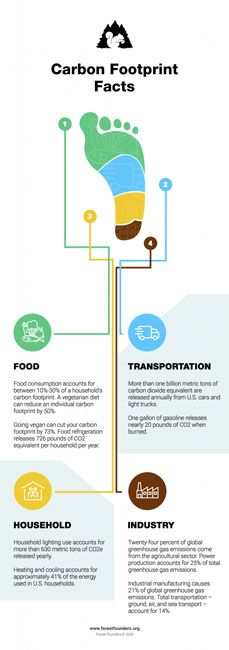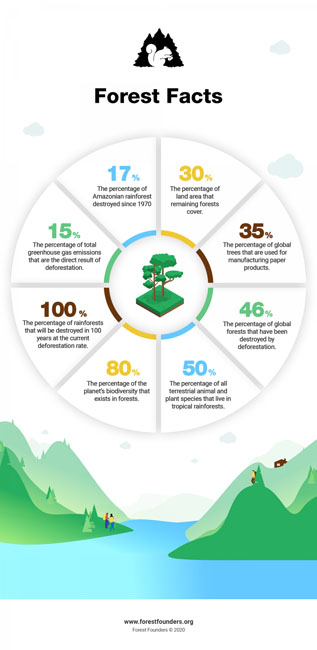It has been widely believed for decades that tree-planting initiatives have the potential to rescue the planet from environmental devastation. While that belief was largely a measure of faith rather than hard science throughout much of the 20th century, new evidence strongly indicates that planting the appropriate trees in the right soil composition around the world could ultimately reduce atmospheric carbon dioxide by 25%.
According to a study published by Science Magazine, there is sufficient global landmass to create additional forest cover by a factor of one-third while keeping inhabited lands and existing agriculture intact. According to the report:
“The restoration of trees remains among the most effective strategies for climate change mitigation. Excluding existing trees and agricultural and urban areas, we found that there is room for an extra 0.9 billion hectares of canopy cover, which could store 205 gigatons of carbon in areas that would naturally support woodlands and forests.”
Learn more
Businesses need to re-envision the concept of environmental sustainability. While it is an effective marketing tool, its primary objective is to deliver lasting consumer and social value.
Regardless of the industry, environmental sustainability is becoming increasingly more vital to business success and longevity. Although green initiatives had been relegated to the sidelines for many U.S. businesses for decades, the urgency of the climate crisis has many executives re-evaluating their priorities, not only for a marketing and branding standpoint, but from a cost of operations perspective. Climate change, in addition to being a tremendous threat to vulnerable populations, unsettles supply chain operations, potentially making business processes untenable.
“In the agriculture, food, and beverage sector, the impacts of climate change have the potential to alter growing conditions and seasons, increase pests and disease, and decrease crop yields. Disruptions in the supply chain may affect production processes that depend on unpriced natural capital assets such as biodiversity, groundwater, clean air, and climate.” – Harvard Business Review “The Comprehensive Case for Sustainability”
Learn more
Reducing our collective carbon footprint will require global cooperation, but there are several things we can do to lessen our emissions.
What is a Carbon Footprint?
While the phrase “carbon footprint” has become a familiar part of the English-speaking lexicon, most people only recognize it as shorthand for “the amount of damage you do to the environment personally.” But more specifically, a carbon footprint means the total volume of greenhouse gas output that is released into the atmosphere based upon human activity.
Learn more
While reforestation – tree planting – cannot completely restore forest cover quickly, it nonetheless offers many of the ecological benefits of primary forests.
Why do we need trees?
Trees are essential to the optimal health of the planet and its diverse ecosystem of flora and fauna – they provide oxygen, act as water and air filters, provide a home for incalculable animal species, preserve soil quality, and they’re soldiers on the front line of global warming.
Trees can save us from ourselves – the dynamic and crowded microbial community surrounding tree roots can filter organic and man-made toxic waste. When they’re planted in dense urban environments, they can help to clear out environmental pollutants that worsen asthma.
Learn more